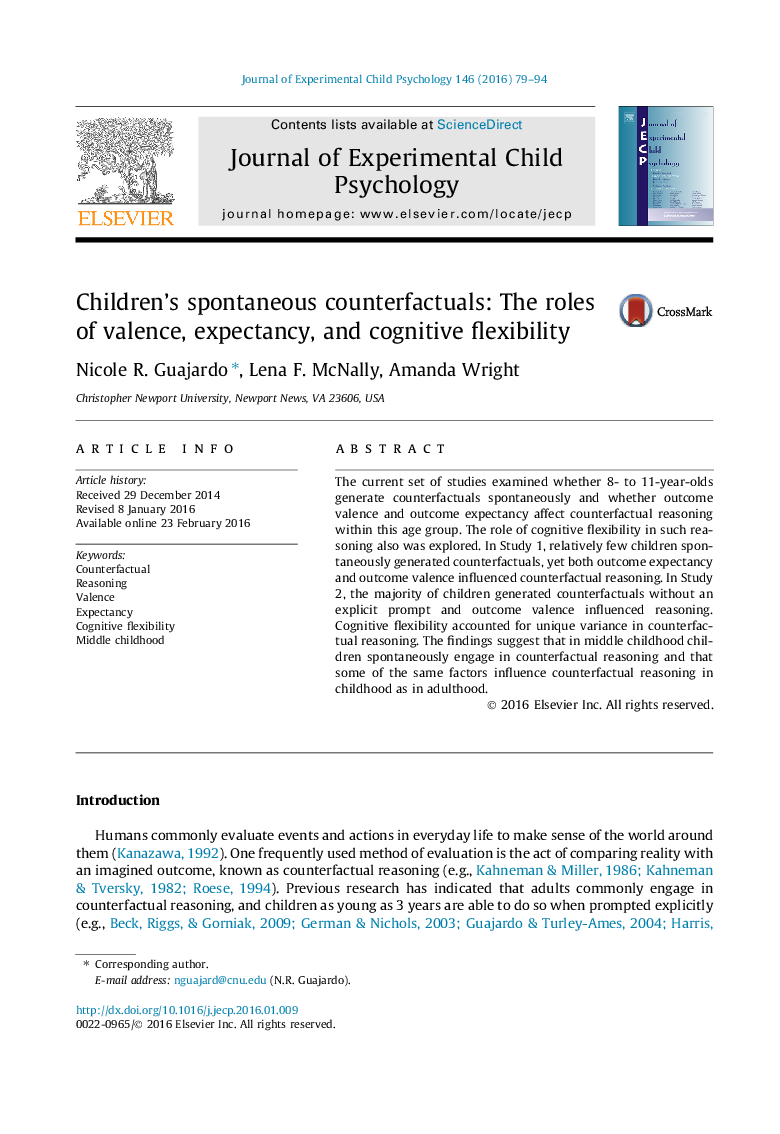| Article ID | Journal | Published Year | Pages | File Type |
|---|---|---|---|---|
| 917923 | Journal of Experimental Child Psychology | 2016 | 16 Pages |
•Examined young children’s spontaneous generation of counterfactuals.•Children generated more counterfactuals for unfavorable than favorable events.•Outcome expectancy affected counterfactual reasoning in Study 1, but not in Study 2.•Cognitive flexibility partially explained variability in counterfactual reasoning.
The current set of studies examined whether 8- to 11-year-olds generate counterfactuals spontaneously and whether outcome valence and outcome expectancy affect counterfactual reasoning within this age group. The role of cognitive flexibility in such reasoning also was explored. In Study 1, relatively few children spontaneously generated counterfactuals, yet both outcome expectancy and outcome valence influenced counterfactual reasoning. In Study 2, the majority of children generated counterfactuals without an explicit prompt and outcome valence influenced reasoning. Cognitive flexibility accounted for unique variance in counterfactual reasoning. The findings suggest that in middle childhood children spontaneously engage in counterfactual reasoning and that some of the same factors influence counterfactual reasoning in childhood as in adulthood.
